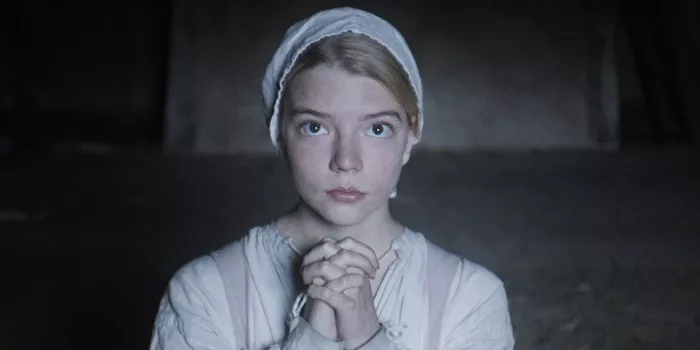The Allure of Simplicity in a Harsh 17th Century Setting
In the haunting and atmospheric horror film “The Witch,” director Robert Eggers weaves a chilling tale of a 17th-century New England family grappling with the sinister forces of witchcraft and supernatural malevolence. At the heart of the film lies a pivotal moment when the Devil himself offers the young protagonist, Thomasin, a proposition wrapped in seemingly simple pleasures – “Wouldst thou like to live deliciously?” This enigmatic and ominous quote serves as a crux, encapsulating the allure of forbidden desires and the contrasting harsh realities of life in the Puritan era. The simplicity of the Devil’s offer, including luxuries like butter and pretty dresses, holds profound significance within the context of the austere and unforgiving societal norms of the time.
Unveiling the Lure of Mundane Pleasures in a World of Deprivation
To the modern viewer, the allure of butter or elegant clothing might seem trivial or mundane. However, within the stringent confines of 17th-century colonial New England, where the Puritan ethos dictated a life of frugality and austerity, these seemingly modest luxuries would have held a significantly heightened value. The scarcity of resources, coupled with the rigid religious doctrines that governed daily life, rendered even the simplest pleasures a rarity. For a young girl like Thomasin, who was raised in an environment defined by scarcity and toil, the prospect of living deliciously, even if seemingly trivial, would have represented an escape from the relentless hardships and an invitation into a world of indulgence that was otherwise unimaginable.
The Historical Context and Real-Life References
Director Robert Eggers masterfully weaves historical authenticity into the fabric of “The Witch,” drawing inspiration from real-life cases of witchcraft accusations and trials that plagued the early American colonies. The quote “Wouldst thou like to live deliciously” finds its roots in documented instances of individuals who were tempted by similar promises of simple, earthly pleasures, only to find themselves entangled in a web of dark and demonic forces. Eggers’s deliberate incorporation of these historical references serves to underscore the deep-seated fears, superstitions, and moral anxieties that defined the collective consciousness of the era. By grounding the Devil’s offer in historical reality, the quote transcends its fictional confines and resonates with the cultural and social milieu of 17th-century New England.
The Symbolism of Temptation and Female Empowerment
Beyond its historical and contextual dimensions, the quote “Wouldst thou like to live deliciously” embodies profound symbolism, reflecting the enduring themes of temptation, empowerment, and the defiance of societal norms. Thomasin, as the central figure confronted with this tantalizing offer, represents not only the vulnerability of youth but also the resilience and inner strength that emerges in the face of adversity. The Devil’s proposal, veiled in the guise of material comfort, beckons Thomasin to embrace her desires, challenging the restrictive boundaries imposed upon her by the rigid patriarchal structure of her society. In this moment of temptation, Thomasin is presented with a choice that transcends the mundane trappings of butter and clothing, symbolizing a pivotal juncture in her journey towards self-discovery and self-assertion.
The Subversive Power of the Quote in Contemporary Discourse
“The Witch” and its profound exploration of the quote “Wouldst thou like to live deliciously” continue to resonate in contemporary discourse, highlighting the enduring relevance of themes surrounding the perils of temptation, the complexities of female agency, and the allure of subversive forces. Eggers’s meticulous attention to historical detail and his nuanced portrayal of Thomasin’s transformation serves as a poignant reminder of the enduring struggles faced by individuals navigating the constraints of societal expectations and cultural norms. In a contemporary context, the quote serves as a provocative commentary on the persistence of temptation and the enduring quest for autonomy, urging audiences to reflect on the complexities of desire, agency, and the consequences of succumbing to forbidden pleasures.
As “The Witch” continues to leave an indelible mark on the landscape of psychological horror, the enigmatic quote “Wouldst thou like to live deliciously” stands as a haunting reminder of the timeless allure of the forbidden and the profound complexities of human nature. Its resonance echoes through the annals of history, inviting audiences to delve deeper into the shadows of temptation and unravel the intricate layers of desire, empowerment, and the eternal struggle between darkness and light.

